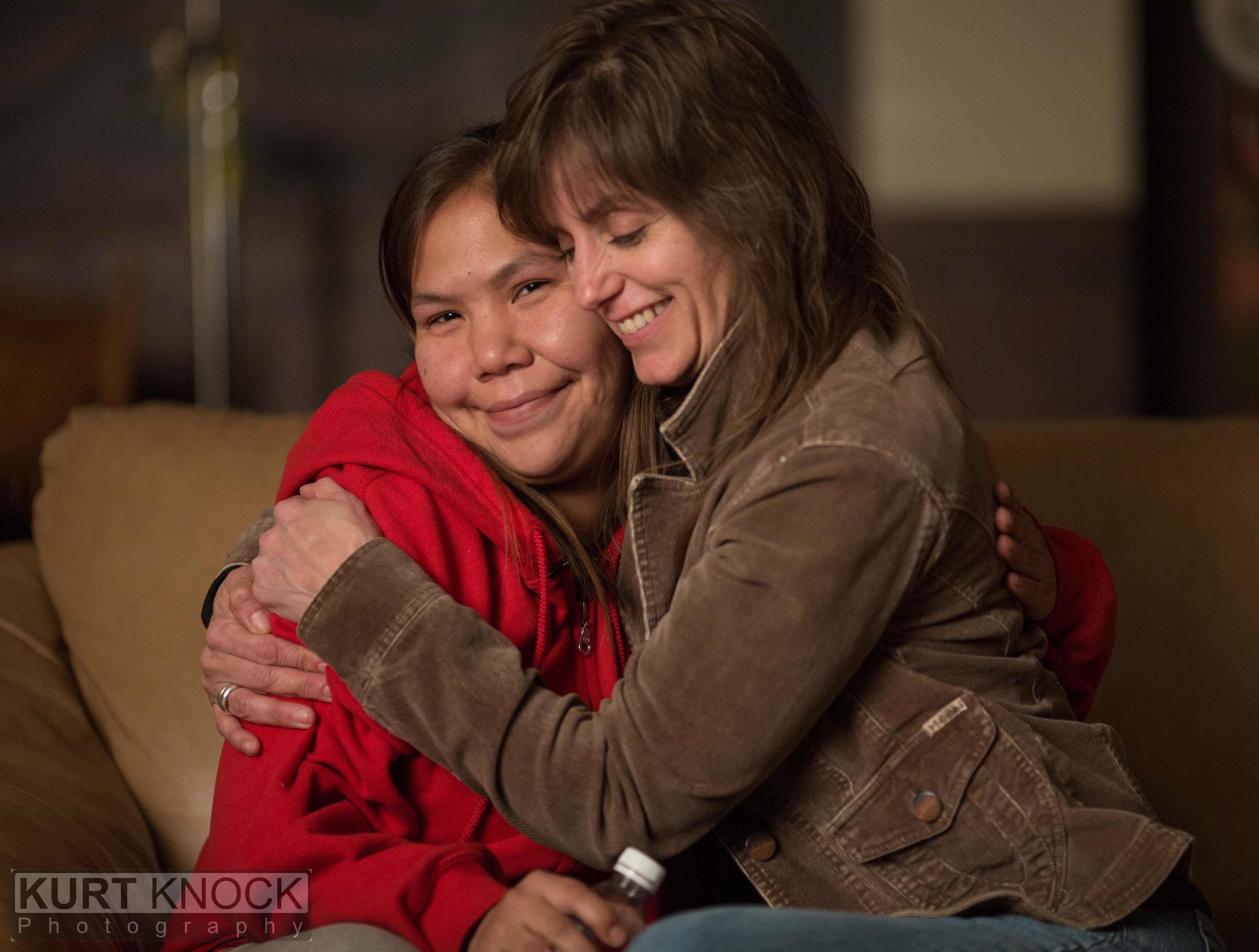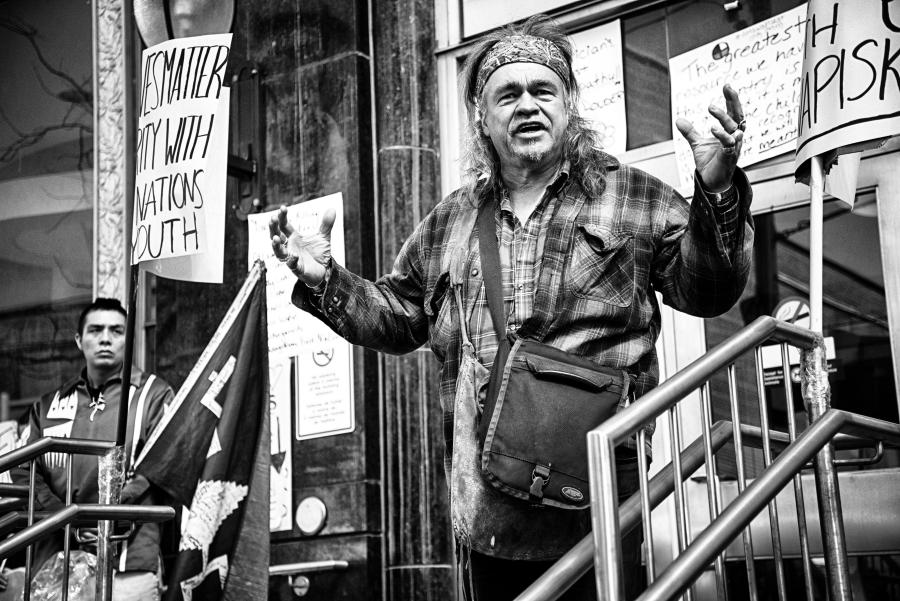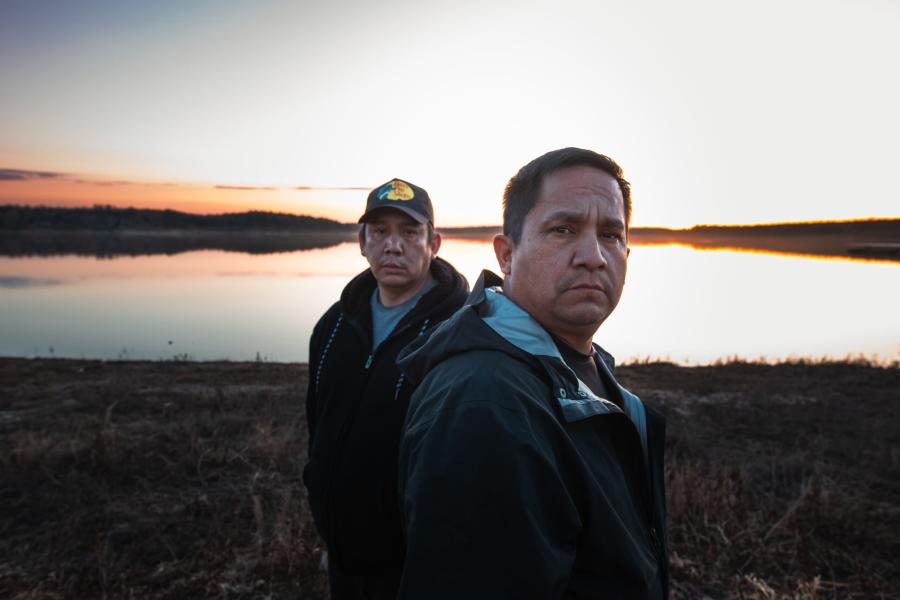
The Red Willow Womyn’s Family Society, Mill Bay, British Columbia, Canada
The Red Willow Womyn’s Family Society is a grassroots Indigenous women-led organization in the Cowichan Tribes First Nations territory of British Columbia, Canada. It was founded in 2009, as a small group of Hul’qumi’num women began weekly gatherings to talk about their lived experiences with daily systemic oppressions. Through these "sharing circles," Red Willow women would help each other navigate their daily barriers, and the circle grew. Today, the Society acts as a support for the wider Hul’qumi’num community. Through cultural protocols and teachings, they support and advocate for one another and work to strengthen families and the role of mothers as sacred life-givers. Cultural Survival’s Keepers of the Earth Fund is supporting the Society’s Breaking the Code of Silence: Lifting the Voices of Hul’qumi’num Families Project, which serves Cowichan, Chemainus, Penelakut, Lyackson, Halalt and Lake Cowichan Tribes.
In Western Canada, three Indigenous babies are removed from their families for State protection protection every day.The Cowichan community exists in a constant state of crisis, struggling with high rates of poverty, homelessness, addiction, suicide and domestic violence, which leaves families in a continuous state of child removal. Red Willow Womyn’s Family Society links the issues surrounding child apprehension directly to the systemic oppressions of poverty, intergenerational trauma, and archaic legislative policies that continue to echo Canada’s Residential School system, whose last institution closed as recently as 1996. The contemporary child apprehension model, under the Canadian Federal Ministry of Child and Family Development (MCFD), awards funding per child apprehended, incentivizing children being apprehended and perpetuating this historic cycle.

Andrea Louie (Cowichan Nation) and Patricia Dawn, Red Willow advocate.
In 2017, over 56 percent of all children in foster care in British Columbia were First Nations, even though Indigenous children make up only 9 percent of the child population in the province. The Chief Island Health Officer of Vancouver Island has repeatedly criticized the local MCFD office and staff, identifying “discrepancies in their decision-making process” that cause unequal treatment of Indigenous to non-Indigenous families.
To deal with this crisis, Red Willow Womyn’s Family Society uses home-based early interventions, working to prevent child apprehension by building the capacity of parents and the family as a whole to ensure child safety by addressing the root causes of child endangerment, prior to apprehension. Their work promotes cultural teachings (called Snuw’uy’ul) and engage Indigenous women and families in reconnecting with their Elders. They provide space for open dialogue, companion families, and mothers, and engage in training, peer-to-peer mentorship and advocacy so that women and families are informed and prepared to navigate the Ministry and courts. Central to Red Willow's work is the process of companioning women, assuring women’s right to have an advocate present—essential for a process that occurs in a language and context of highly unequal power which was not previously recognized. Advocacy for families has improved access and serves as a tool for Ministry accountability.
Through a grant from KOEF, the Red Willow will implement a project Breaking the Code of Silence for the Hul’qumi’num community to raise their voices and be heard by the Ministry and government in order to address the cycle of child removal. They through a process of holding meetings and public forums, creating increased understanding, engagement, peer-to-peer advocacy, to initiate systemic change.



